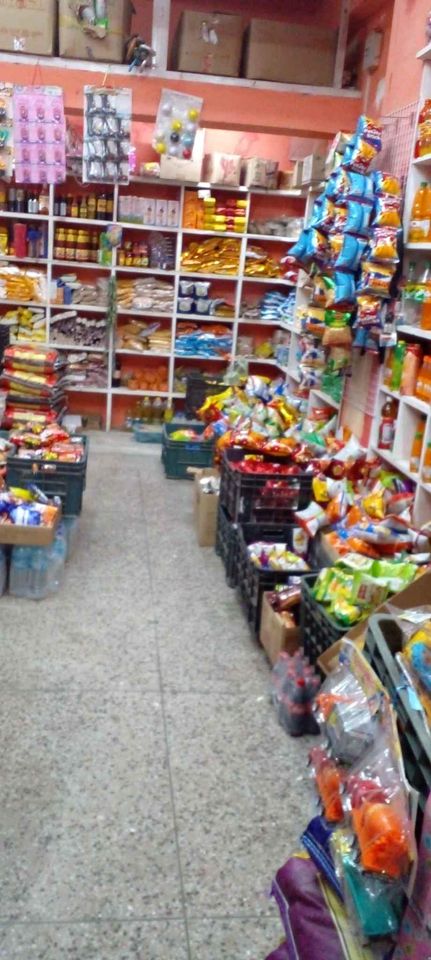…..A total of 172 businesses, including groceries, meat markets, auto shops, tire shops, and Petroleum Retail Outlets (PRO) inspected.
By Sonam Deki
From November 20 to December 5, 2022, the major market hubs in Gasa, Punakha, and Wangdiphodrang Dzongkhags were inspected by Office of Consumer Protection (OCP) with the assistance of Bhutan Agriculture and Food Regulatory Authority (BAFRA) Offices in the respective Dzongkhags.
A total of 172 businesses, including groceries, meat markets, auto shops, tire shops, and Petroleum Retail Outlets (PRO) were inspected. The inspection’s goal is to ensure that businesses follow the consumer protection regulations outlined in the Consumer Protection Act (CPA) of 2012 and the Consumer Protection Rules and Regulations (CPRR) of 2015. 172 businesses were inspected during the phase.
During the inspection, they discovered that 66.9% had pre-printed cash memo/purchase receipts that were issued when customers requested them. Only two businesses (out of a total of 153 that used weights and measures) were found to be using valid calibrated devices, while the other 19 used devices that had been calibrated once but whose validity had expired. The remaining 76% had never calibrated their measuring devices.
On average, roughly half of the businesses (50.1%) display prices correctly. Grocers have the lowest compliance rate, at around 14.5%. This is because the majority of grocery stores sell locally produced agriculture and livestock products in plain plastic bags with no labeling. Compliance was achieved by 66.7% of meat shops, 75% of Petroleum Retail Outlets, and 44.4% of automobile workshops.
Ten companies were selling spare parts without a business license. The vast majority of companies selling auto parts had tampered with the labeling, particularly the price information. Packaged foods past their expiration dates were found for sale in 31.3% of the three Dzongkhags, with Gasa having the highest rate at 40%.
A grocery (general store) was discovered selling general drugs without authorization from the Drug Regulatory Authority (DRA) at an inflated price of Nu 70/- per strip for Sinarest. The volumes of Highly Specialised Drugs (HSD) dispensed varied slightly, ranging from 0.9-13ml at Druk Petroleum Corporation limited (DPCL), Lobesa, to 0.07-0.09ml at Bhutan Oil Distributors (BOD), Gasa, and to 0.08-0.11ml at Langlay Tshewa.
Water content in fuels was found to be within the allowable range in all PROs. The DPD in Baychu, Wangdue Dzongkhag, lacks a hydrometer and a thermometer. These are essential tools for measuring fuel density, which must be done and recorded on a daily basis. The 5-liter cans at all PROs were not calibrated, with the exception of the BOD at Gasa. Five Liquefied petroleum Gas (LPG) cylinder depots lack proper storage, in violation of the Standard Operating Procedure (SOP) on Storage and Handling of LPG Cylinders, 2022, and none have a weighing machine.
According to OCP reports, “The Bhutan Standards Bureau (BSB) was notified, and a list of all business entities in need of weights and measures calibration and recalibration was shared with them for their action. The list of businesses that do not have valid business licenses was forwarded to Thimphu’s Regional Office of Economic Affairs (ROEA) for action. In collaboration with Bhutan Agriculture and Food Regulatory Authority (BAFRA), all expired food items were seized, and violators were fined in accordance with the law. Six grocers in Gasa were fined Nu. 3,560, 17 groceries in Punakha were fined Nu.16,310, and 15 grocers in Wangdue were fined Nu.18,331”.
The small discrepancies in the dispensed volumes at the PROs were immediately corrected in collaboration with the ROEA, Thimphu. The unauthorized sale of medicine was reported to the Drug Regulatory Authority (DRA). All non-compliant PROs were immediately directed to strictly follow the SOP for LPG Cylinder Safekeeping and Handling, install weighing machines at depots, and calibrate or re-calibrate all measuring devices within two weeks. PROs were also instructed to keep density measuring tools on hand and to record them on a daily basis.

 BHUTAN TODAY The New Perspective
BHUTAN TODAY The New Perspective
